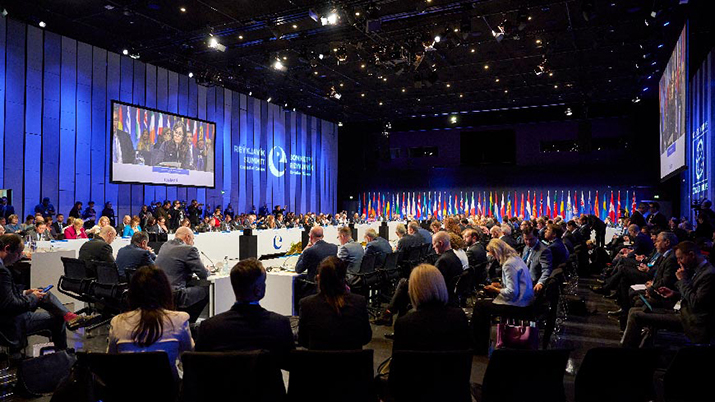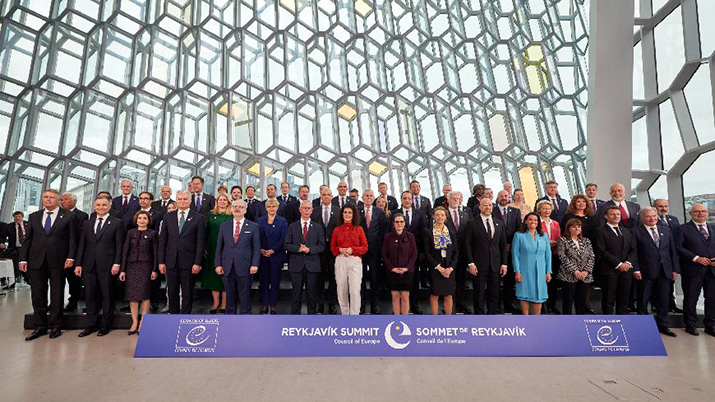HAPPENING AT THE COUNCIL OF EUROPE
THE 4TH SUMMIT OF HEADS OF STATE AND GOVERNMENT IN REYKJAVIK
The Russian aggression against Ukraine is being dealt with «by elevating Europe and guaranteeing the peace and democratic security that comes when the rights of every person are respected. This meeting offers you the opportunity to do just that… And not only in word but in deed». Speaking at the opening session of the 4th Summit of Heads of State and Government of the Council of Europe, which took place in Reykjavik in May, Secretary General Marija Pejčinović Burić was very clear in asking European leaders to take urgent measures to reverse a process that might actually lead to the decline of democracy.
Europe is faced with an important choice, she stressed, «we can allow our directives to break down and see Europe regress uncontrollably. Or, we can reinvest in what has done good for so many people over the last seventy years… This is a chance for you to set a solid and lasting path for the Council of Europe». The Secretary General encouraged the summit participants to promote the Reykjavik Principles of Democracy and strongly support the accession of the European Union to the European Convention on Human Rights. The Council of Europe's «timeless standards», she stressed, must be applied to contemporary challenges, such as artificial intelligence and climate change.
The appeal did not fall on deaf ears. The heads of state and government of the organization's 46 member states have agreed to establish a register of damage caused by Russia’s war of aggression as a first step towards an international compensation mechanism. Leaders also agreed on the need to strengthen the Council of Europe and its action in the fields of human rights, democracy and the rule of law by adopting a declaration on democratic principles, renewing their commitment to the European Convention on Human Rights and developing tools to respond to emerging technological and environmental challenges.
In accepting the invitation to act immediately, the leaders of the Council of Europe adopted the «Reykjavik Principles for Democracy», a series of guidelines to be respected in different areas, including freedom of expression, association and peaceful assembly, the independence of institutions, the impartiality and effectiveness of the judiciary, the fight against corruption and the democratic participation of civil society and young people.
In essence, it is a question of working towards full application of the Convention, which on paper is considered by all to be a cornerstone of the protection of human rights, but in practice is not uniformly respected. Furthermore, we cannot forget that these principles must be applied in concrete areas, to which they are profoundly linked. Among these, the environment is perhaps the first according to the experts, since a clean, healthy and sustainable environment is essential for the full exercise of human rights. The work of the Council of Europe in this area must therefore be based on the political recognition of the right to a healthy and sustainable environment, also relying on the ample jurisprudence advanced by the European Court of Human Rights.
But the challenges to be faced are multiplying and for this reason the summit has defined a series of other priorities that must characterize the activity of the Council of Europe. Topping the list is the accession of the European Union to the European Convention on Human Rights, but new rules also need to be implemented to protect human rights in the digital age both online and offline, particularly in the field of artificial intelligence, as well as the promotion of social rights in Europe through the Social Charter. There are other specific cases, in particular that of Belarus, for which continuous cooperation has been established with the forces of the democratic opposition, as well as with human rights defenders, free media and independent civil society.








